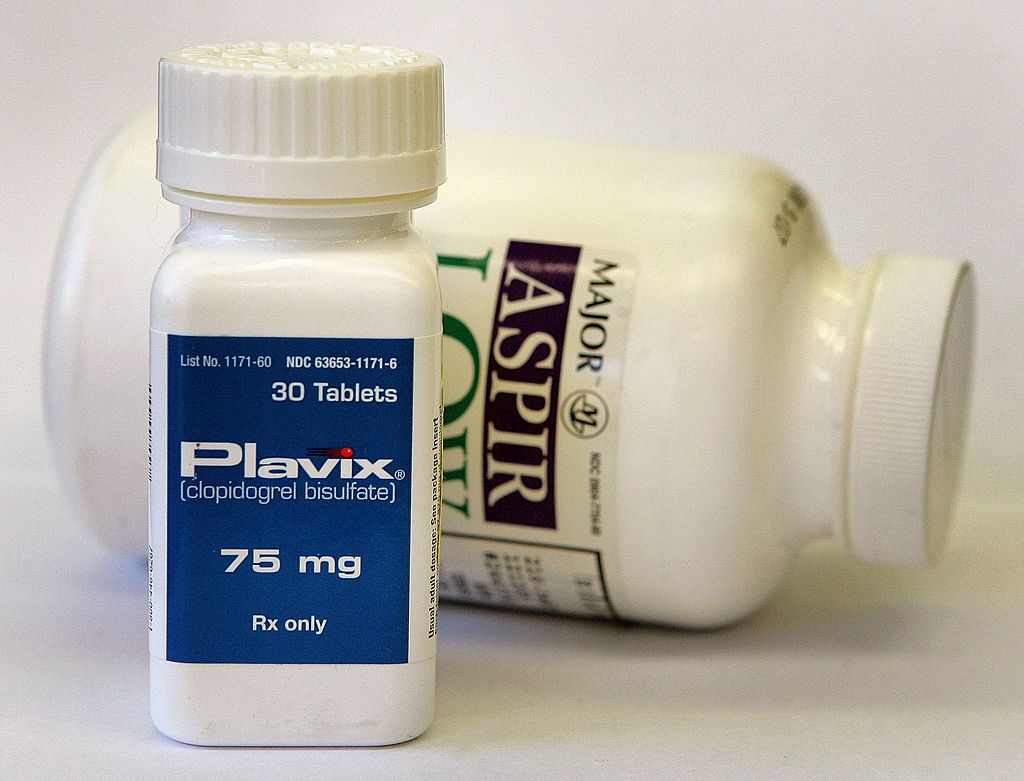Younger patients with the common heart rhythm disorder atrial fibrillation but no other risk factors for stroke are not likely to benefit from blood-thinning drugs, a Canadian study presented at the American Heart Association Scientific Sessions in Chicago found.
In a trial involving 1,235 otherwise healthy adults under age 65 with Afib, prescribing anti-clotting medications did not reduce patients’ risk of cognitive decline, strokes or transient ischemic attacks (TIAs), sometimes referred to as mini-strokes.
None of the study participants had stroke risk factors such as diabetes, heart failure, high blood pressure, or a prior stroke or TIA. Half of them received 15 milligrams daily of rivaroxaban, sold by Johnson & Johnson JNJ.N under the brand name Xarelto. The others received a placebo.
The trial was originally expected to continue for 5 years but was terminated at an average follow-up of 3.7 years after an independent monitoring committee determined a clear lack of benefit from the medication.
There were no differences in the outcomes of cognitive decline, stroke or TIA between those taking rivaroxaban and those receiving a placebo, researchers reported at the AHA meeting. The annual rates of these conditions combined were 7% with rivaroxaban and 6.4% with placebo.
“Although numerous observational studies have reported an association between Afib and cognitive decline, we found that anticoagulation therapy initiated in relatively younger adults with AFib did not reduce this risk,” study leader Dr. Lena Rivard of Universite de Montreal said in a statement.
“In clinical practice, people younger than age 65 with AFib tend to be overtreated with anticoagulant therapy, while older people who have indications for anticoagulation are under-treated,” Rivard said.
“Our study supports current guidelines by confirming that younger people with Afib but no other risk factors for stroke have a low rate of stroke, and anticoagulation is not useful in reducing the risk of cognitive decline.”
Recycled U.S. pacemakers may save lives overseas
Previously used reconditioned cardiac pacemakers worked as well as new devices in a study of nearly 300 people in seven low- and middle-income countries, according to data presented at the AHA meeting.
Reusing pacemakers is prohibited in the United States, but the U.S. Food and Drug Administration allows re-sterilized devices to be exported for reuse, the researchers noted.
Pacemakers with at least six years of battery life and proper electrical function were sterilized for reuse after recovery from deceased patients and patients undergoing surgeries that involved removal of their existing devices.
Participants in the study were randomly assigned to receive a new device or a reconditioned device.
Three months later, there were three cases of infection requiring implant removal in the new-device group and two cases in the reconditioned pacemaker group.
Five patients with new pacemakers and six with reconditioned devices required surgery to move or replace the device’s leads.
“In some high-income countries, as many as 1,000 people per million population may receive a pacemaker annually. In low-income countries, it could be 3 per million population or fewer who get pacemakers each year,” study leader Dr. Thomas Crawford of the University of Michigan Medical School said in a statement.
Three deaths unrelated to device implantation occurred in the reconditioned group and none in the new pacemaker group.
There were no device malfunctions in either group.
While larger and longer studies are needed to determine the long-term safety and effectiveness of reconditioned pacemakers, this trial suggests positive outcomes for heart patients with lower financial resources who need pacemakers, his team concluded.
Tighter BP control advised for type 2 diabetes
Stricter blood pressure control appears to protect adults with type 2 diabetes from major cardiovascular events, according to a study by Chinese researchers presented at the AHA meeting.
In their trial involving nearly 13,000 adults with type 2 diabetes and hypertension, keeping systolic blood pressure – the top number – to 120 mm Hg or lower led to a reduced risk of heart attack, stroke, heart failure and cardiovascular-related death compared to the standard approach of keeping it below 140 mm Hg.
Four years after the start of the study, average systolic pressures were 120.6 mm Hg in the intensive treatment group and 132.1 mm Hg in the standard treatment group.
The combined rate of non-fatal stroke, non-fatal heart attack, hospitalization or treatment for heart failure, and heart-related deaths was 1.65% per year in the intensive treatment group and 2.09% per year in the standard treatment group.
The average patient age at enrollment was 64. After accounting for patients’ individual risk factors, the intensive treatment group had a 21% lower risk of major cardiovascular events, according to a report of the study published in The New England Journal of Medicine.
Most participants in the intensive treatment group were initially given a two- or three-drug regimen of a diuretic and other types of blood pressure lowering medicines. Drug doses were increased or additional medications added at monthly intervals until systolic pressure was below 120 mm Hg.
The intensive treatment group had more non-serious symptoms related to low blood pressure, however.
Among the study’s weaknesses are that participants sometimes used home blood pressure monitoring to self-report their blood pressure levels via telephone, especially during the pandemic lockdown. The researchers also noted that results of this Chinese study may not be generalizable to people of other ethnic populations, the researchers said.
Still, the findings “provide strong support for a more intensive systolic blood pressure target in people with type 2 diabetes for the prevention of major cardiovascular events,” study leader Dr. Guang Ning of Ruijin Hospital at Shanghai Jiao Tong University School of Medicine said in a statement.
(Reuters)














